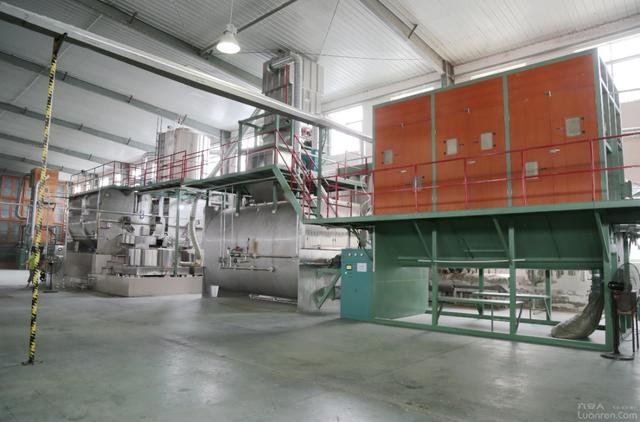
down jacket production includes two main stages: down processing and garment manufacturing. Each stage has a certain demand for heat, mainly concentrated in down cleaning, disinfection, drying, fabric finishing, and shaping. The following are specific heat-using processes and corresponding temperature ranges:
- Down processing stage
- Down cleaning
- Process: Use high-temperature water to clean the down to remove stains, impurities and grease to ensure the cleanliness of the down.
- Temperature: 40~60°C.
- Heat source: hot water system.
- Down disinfection
- Process: Sterilize and disinfect the down with high-temperature hot water or steam to ensure compliance with hygiene standards.
- Temperature: 80~100°C.
- Heat source: steam or high-temperature hot water.
- Down drying
- Process: After cleaning and disinfection, the down needs to be dried quickly at low temperature to maintain its fluffiness and warmth.
- Temperature: 50~70°C.
- Heat source: hot air system or high temperature heat pump.
- Clothing manufacturing stage
- Fabric finishing
- Process: Down jacket fabrics need to be softened, shaped and pre-shrunk before production to ensure the quality of cutting and sewing.
- Temperature: 70-90°C (steam finishing); 40-60°C (softening treatment).
- Heat source: steam or hot water system.
- Garment gluing
- Process: In order to enhance the waterproofness of down jackets, the seams of fabrics need to be glued and heated.
- Temperature: 90-120°C.
- Heat source: electric heating or hot air equipment.
- Finished product drying and ironing
- Process: Dry or iron the finished down jackets to ensure beautiful appearance and shape.
- Temperature: 60-80°C.
- Heat source: hot air or steam.
Application of high-temperature heat pumps in down jacket production
With the characteristics of high efficiency, energy saving and multifunctional integration, high-temperature heat pumps can be widely used in many links of down jacket production, replacing traditional coal-fired boilers and electric heating equipment, and significantly reducing energy consumption.
- Down cleaning and disinfection
- Application: The heat pump provides stable 40~100°C hot water for down cleaning and disinfection, replacing traditional boilers.
- Advantages:
- Precise temperature control to avoid damage to down due to excessive temperature;
- Save steam and reduce operating costs.
- Down drying
- Application: The heat pump provides a 50~70°C hot air system for down drying.
- Advantages:
- The heat pump recycles the hot and humid air discharged during the down drying process, further improving the drying efficiency;
- Avoid high temperature causing brittleness of down fibers.
- Fabric and garment finishing
- Application: The heat pump provides 60~90°C hot water or hot air for fabric finishing and garment ironing.
- Advantages:
- Replace steam boilers to achieve multiple uses of one machine;
- Reduce heat loss between process links and simplify equipment configuration.
- Application: Recover waste heat from washing water and drying air for down preheating and washing or factory heating.
- Advantages:
- Increase waste heat utilization rate to more than 60%;
- Reduce dependence on external energy and achieve energy saving in the entire production process.
High-temperature heat pump transformation case
Energy-saving transformation project of a down jacket production enterprise
- Background: 500,000 down jackets are produced annually, and coal-fired boilers were used for heating, which was energy-wasting and polluting.
- Transformation content:
- The heat pump system provides hot water (40~90°C) for down washing, disinfection and fabric finishing;
- The heat pump hot air system is used for down drying and garment ironing;
- Add a waste heat recovery module to provide a heat source for workshop heating.
- Effect:
- Energy consumption is reduced by 45%, saving about 1 million yuan per year;
- Carbon dioxide emissions are reduced by 2,000 tons per year;
- The process operation is more stable and the product quality is further improved.
Summary of the advantages of high-temperature heat pumps
- Energy saving and environmental protection: using low-grade heat sources to reduce fossil fuel use and carbon emissions.
- One machine for multiple uses: meeting multiple needs of cleaning, disinfection, drying and finishing, and improving production efficiency.
- Stable operation: precise temperature control to meet the diverse needs of down jacket production processes for heat sources.
- Economical and efficient: reducing operating costs and short investment return cycle.
Conclusion
Today, as energy efficiency and green manufacturing are increasingly valued, high-temperature heat pump technology provides a reliable energy-saving solution for the down jacket production industry. By optimizing the process and improving the utilization rate of thermal energy, high-temperature heat pumps not only help companies reduce production costs, but also help achieve sustainable development goals. If you are interested in the specific application of high-temperature heat pumps, please Contact Us for professional consultation and technical support!


